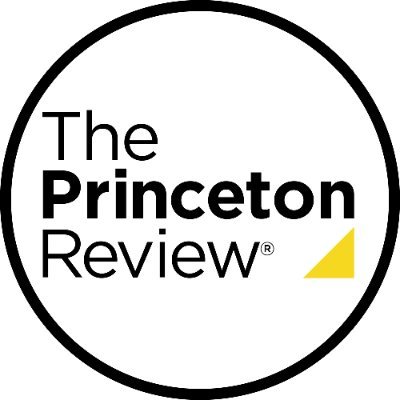

The best business schools don’t just do one thing well. They’re committed to top-to-bottom excellence in every dimension: programming, experience, support, and satisfaction. That cohesion – and the strategy and execution behind it – trickles into every corner of a program. All the right people buy in. Call it a virtuous cycle: Respected leaders hire A-level talent and admit high potentials – with the latter joining top firms and opening doors for those who follow.
MBA Rankings are designed to condense data until it fits into one neatly-packaged number. The Princeton Review takes a different approach. Rather than bundling data, The Princeton Review breaks it apart so readers know specifically where their target schools shine. The ranking consists of 18 categories, such as the quality of the faculty or consulting programming. Rather than a final index score tethered to questionable weights, The Princeton Review simply shares the Top 10 performers across each category. In the process, readers can identify the programs providing the highest student and alumni satisfaction in the areas that matter most to them. Call it the ranking that lets readers think for themselves, an imperfect instrument that respects its audience and possesses the courage to be different.
The result? Like most rankings, the Stanford Graduate School of Business and Northwestern University’s Kellogg School of Management cemented their M7 credentials by regularly ranking among the best across-the-board. Like previous Princeton Review rankings, there were several upstarts – including Virginia Darden, Michigan Ross, and Vanderbilt Owen – whose rankings position them as undervalued assets that deserve a deeper look.

THE METHODOLOGY
“Since we debuted our b-school rankings in 2004 in multiple categories as opposed to a single list, our goal has been to help b-school bound students identify the MBA program best for them,” wrote Rob Franek, The Princeton Review‘s Editor-in-Chief, in a press release “The schools that made our list for 2024 all have impressive individual distinctions. What they share are three characteristics that broadly informed our criteria for these rankings: outstanding academics, robust experiential learning components, and excellent career services. Equally impressive to us—and probably to prospective applicants—is that every one of our best b-schools for 2024 garnered highly favorable ratings among its MBA students we surveyed.”
Unveiled on July 16th, the 2024 Princeton Review MBA ranking is a better late than never proposition. After all, the 2023 ranking was released in February 2023, a near 18-month gap between rankings. To compile the student portion of the 2024 ranking, The Princeton Review surveyed over 21,500 on-campus respondents from 244 graduate business schools who’d been enrolled in their program within the past three years. As part of the student survey, respondents rated areas ranging from faculty to campus life. In addition, The Princeton Review submitted surveys to school administrators to compile data on “academics, selectivity, faculty, technical platforms, career services, and other topics.”
Overall, The Princeton Review compiled 60 data points to produce rankings across its 18 categories, which contain a mix of student-only, administrator-only, and combined student-and-administrator data. Instead of supplying actual school scores, however, The Princeton Review simply ranks the Top 10 in each category. This makes it impossible to know the gaps between ranked programs or even where unranked programs finished compared to their peer schools.
YALE AND NYU REPEAT WHILE KELLOGG DISRUPTS
The Princeton Review’s programming ranking may be its most valuable measure. Think of it as a mix of school data like placement and starting pay and student assessments “of how well their school is preparing them for a career in a particular field.” In this area, The Princeton Review covers seven different industries:
Consulting
Finance
Management
Marketing
Operations
Non-Profit
Human Resources
Not surprisingly, a different school tops each of the seven lists. Yale SOM repeated as the top program for Consulting, with Michigan Ross dislodging Virginia Darden as the #2 MBA program in the field (and Northwestern Kellogg moving from being unranked to 4th). NYU Stern again snapped up the #1 spot in Finance, besting Columbia Business School and Virginia Darden (while UNC Kenan-Flagler and Rice Jones clung to the 4th and 5th spots). Northwestern Kellogg disrupted the Management category, claiming the top spot from Stanford GSB (which dropped to 4th). Like Consulting and Finance, a newbie – UC Berkeley Haas – checked into the #4 spot in Management.
While Kellogg has traditionally been dubbed the “Marketing School,” it actually finished 6th in this measure. In fact, Stanford GSB is the only program to stick in Marketing’s Top 5 – and it fell from 1st to 5th. Washington Foster took its place at #1, followed by under-the-radar programs like Indiana Kelley, Wisconsin Business School, and UCLA Anderson. On top of that, last year’s #2 in Marketing – Dartmouth Tuck – actually dropped out of the Top 10.

Kellogg MBA Students
WHAT SETS KELLOGG AND OWEN APART
In a head-scratcher, Purdue Krannert ranked as the top school for Operations – even though it no longer offers a full-time MBA program. The same can be said for Penn State Smeal, which placed 3rd. After being the runner-up to Stanford GSB in the Non-Profit space last year, Bard College seized the top spot, while Pepperdine Graziadio climbed from 5th to 2nd. BYU Marriott joined Bard in moving from #2 to #1 – this time in Human Resources.
Among the various academic program rankings, three programs ranked among the Top 10 in four categories: Stanford GSB, Northwestern Kellogg, and Vanderbilt Owen. Alas, Stanford GSB lost the #1 spot in three categories this year. At the same time, Duke Fuqua and Virginia Darden ranked among the ten-best in three categories.
Historically, Kellogg has been associated with teamwork more than management. In fact, the school notes that MBAs will likely participate in 200 team meetings during their time in Evanston. In Kellogg’s worldview, service and collaboration are cornerstones for being an effective manager. The school has branded itself as “Low ego, high impact” leadership – an approach grounded in reflection and self-awareness that fosters dialogue and trust.
“The school’s focus is on developing a leader who can navigate an environment of change, and a leader who has been shaped by and embodies the essential quality of creativity and collaboration, explains Emily Haydon, Kellogg’s Assistant Dean of Admissions and Financial Aid, in a 2023 interview with P&Q. “With this focus and shared culture, we produce leaders who leverage this empathic mindset to drive relationships and performance both professionally and personally.”
In contrast, you could say Vanderbilt Owen’s programming success has been a by-product of its personalized approach, where each student receives intensive support to achieve their career growth plan.
“Having every resource for success is crucial – world class faculty and dynamic classrooms, life-changing career opportunities, immersive experiences and surroundings, and faculty, staff and peers that care about your success,” says Bailey McChesney, Director of MBA Admissions at Owen, in a 2024 interview with P&Q. “The Vanderbilt MBA program has all of those things, but what differentiates us is that our small size, extremely close-knit community and incredible setting in Nashville, Tennessee mean that all of those resources are readily accessible and the people behind them all know your name. Within a one-minute walk in our building, a student could see their Leadership Coach, Career Coach, Academic Advisor and professors, and will walk by dozens of their classmates gathering together. Our community cares deeply about not only the outcomes students achieve, but their experience and growth in the program, and success well beyond business school.”

Vanderbilt Owen students taking notes in a marketing class
WHY DARDEN FACULTY RANK #1
The rankings also feature seven categories based exclusively on student survey results. They include the following areas:
Best Classroom Experience: “Professors’ teaching abilities, the integration of new business trends and practices in the curricula, the intellectual level of their classmates’ contributions in course discussions, and whether the business school is meeting their academic expectations.”
Best Professors: “How good their professors are as teachers and how accessible they are outside the classroom.”
Most Competitive Students: “How competitive their classmates are, how heavy the workload is, and the perceived academic pressure.”
Most Family Friendly: “How happy married students are, how many students have children, how helpful the school is to students with children, and how much the school does for spouses of students.”
Best Campus Environment: “How happy students are and how they rate the town the school is located in and the campus community, the availability of school activities, and level of participation from fellow students.”
Best Administered: “How smoothly the school is run, and the ease with which students can get into required and popular courses.”
Most Green MBA: “How well their school is preparing them in environmental/sustainability and social responsibility issues, and for a career in a green job market.”
Next Page: Links to 18 business school rankings from The Princeton Review.



